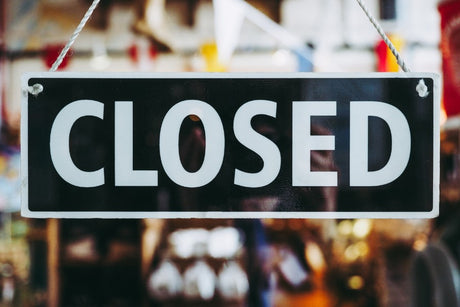Our take on Amazon's arrival in Australia
Journalists love a fresh, meaty topic with the potential to generate hysteria, divide the winners from losers and, more importantly, polarize opinion.
It was around October last year when the first wave of initial stories leaked "whispers" of Amazon scouting locations in readiness to launch in Australia.
Nothing was official at that stage, but the scent of a story was all journalists needed to build momentum and hype.
It was, of course, accompanied by more whispers that a few other European-based global grocery giants were also running the ruler over Australia's retail landscape to compete against our supermarket triumvirate that continues to enjoy world-class margins and profitability - although that trend of profitability is in decline.
That set the ball rolling in what is now an out-of-control juggernaut, with articles published daily on what Amazon means to Australia.
What I find most interesting (and simultaneously disappointing) is that many of these stories about Amazon's arrival in Australia must be better researched, devoid of intelligent facts and figures and based upon a contrived premise.
All retail in Australia remains suspended in a fragile state.
They even refer to recent brands that have failed to justify the story's premise.
It often starts with a sensational headline about how Amazon will destroy all competitors across all industries.
Our biggest retailers are running scared, building war rooms and implying they are clueless about defending their at-risk positions.
Even the share price of Harvey Norman tanked by double-digit percentages in a single day when the Amazon announcement became official.
Unfortunately, we live in an era of fake news.
Journalists need to learn about the subject they are writing about and grasp desperate headlines to fill in the copy.
Amazon, like all successful entities, is excellent in managing secrecy - even their global real estate partner, Goodman, won't divulge information.
We are positive about the arrival of Amazon in Australia - for several reasons.
The biggest win for Amazon's arrival in Australia will be changes in logistics.
It's been a long time coming - a general lack of investment by most freight providers, negative attitudes to consumer freight, sneaky and appalling surcharges whacked on merchants for residential deliveries - it's glaringly obvious that general freight companies dislike residential freight. We are looking forward to some significant disruption in this space.
Amazon will have an impact in the lowering of prices for many goods in Australia whilst at the same time likely to result in opening up more imports into Australia.
Whether that is a good thing for the Australian economy is hard to tell.
Increased imports and the impact on trade balances with a declining resources sector only economists can say for sure.
Bear in mind that having Amazon in Australia does not automatically mean Australian merchants will be able to increase exports, as each country has their own strict set of entry requirements,
Because you might list on Amazon Australia, it is challenging to fulfil orders outside Australia.
We say that Amazon will not create new global market opportunities for Australian-based retailers.
However, it might generate thought and interest in considering the opportunities outside Australia.
A case in point is that Aldi Australia is building an Australian-themed online presence in targeted Asian countries now.
I'm also hopeful Amazon will disrupt the outdated and expensive dinosaur that is eBay. eBay needs to do more for its 10% valuation fees (ironically sent offshore instead of paying fair and reasonable Australian company taxes to fund our health, education and infrastructure).
It has the most arcane restrictions and policies that do little to help businesses grow sustainably.
They slant the bias of Best Match searches towards unsustainable metrics, and the ability to configure flexibility in product and shipping configurations needs to be updated.
I'm hopeful that true competition might change the game and force incumbent platforms to offer more for less.
Amazon will hold the most opportunity for original manufacturers and "creators".
These are the people and companies that have worked the hardest and invested the most to build their capability and offer products that have distinction in the market rather than just resellers.
Giving the original manufacturer more control via a broader platform with improved logistics performance means these original investors can operate without the controlling influences of dominant and predatory retailers like the big supermarkets.













